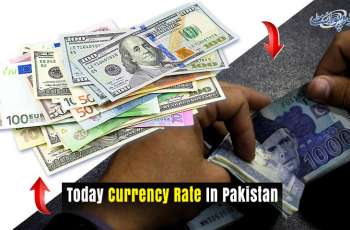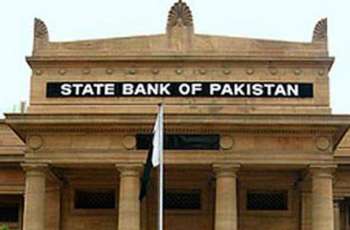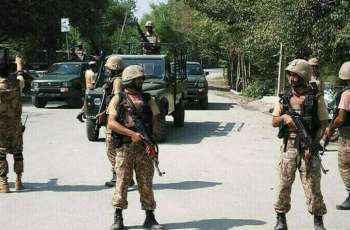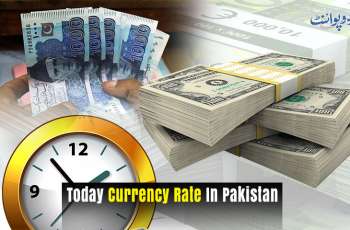MOSCOW (Pakistan Point News / Sputnik - 11th September, 2018) The participation of East Asian regional leaders, including Chinese President Xi Jinping and Japanese Prime Minister Shinzo Abe, during the upcoming Eastern Economic Forum (EEF) could help produce new deals and agreements to boost the development of Russia's Far East regions.
The annual business forum, which started in 2015, is expected to be held in the Russian port city of Vladivostok on September 11-13.
The main event of the forum will be the plenary session "The Russian Far East: Creating a New Reality," where regional leaders, including Russian President Vladimir Putin, Chinese President Xi Jinping, Japanese Prime Minister Shinzo Abe, Mongolian President Khaltmaagiin Battulga and South Korean Prime Minister Lee Nak-yon, are expected to deliver keynote speeches.
Putin stressed the importance of the EEF as an important platform for direct dialogue between politicians, public figures and entrepreneurs, in his greetings message to the participants and guests at the forum.
"Over the years, the Forum has become an important and popular venue for face-to-face dialogue between politicians and public figures, business executives and experts. This year, delegations from more than 60 countries across the world will be taking part," Putin said in a letter published by the Kremlin press service.
During his speech at the forum, Putin will outline the plans for the development of Russia's Far East and touch upon security in the Asia Pacific region at the forum, according to Russian presidential aide Yuri Ushakov.
"Our president's statement is meant to touch upon large-scale plans to speed up the socio-economic development of the Far East. Yet again, the president will invite foreign investors to work with Russian business in Far East projects more actively. There will be remarks about strengthening security and stability in Asia Pacific region," Ushakov said during a press briefing on September 5.
Putin is expected to hold one-on-one bilateral meetings with leaders from China, Japan and Mongolia on the sidelines of the EEF.
Within the framework of the EEF-2018, five interstate business dialogues are also expected to take place, including Russia-ASEAN, Russia-India, Russia-China, Russia-South Korea, and Russia-Japan.
This year's EEF marks the first time Chinese President Xi Jinping, who is expected to lead the largest Chinese official delegation to ever take part in the forum, is participating in the event. The Chinese delegation will include governors of Chinese provinces such as Heilongjiang, Guangdong, Sichuan, Shandong, Zhejiang, Jiangsu, Jilin, Liaoning and Inner Mongolia. Around 600 representatives from China will take part in the forum, including provincial governors, officials, heads of state corporations and representatives of the business community.
Xi's presence at the upcoming business forum in Vladivostok could be viewed as important as an official visit to Russia, China's Assistant Foreign Minister Zhang Hanhui said on Friday.
"The participation of President Xi Jinping in the forum can be called a working visit, not an official visit. But from the perspective of the organization by the Russian side, this is a very high-level trip, which demonstrates the traditional friendship of the two leaders, the special character and high level of bilateral relations ... The scale and importance of this trip are not inferior to the official visit," Zhang said at a press conference.
Xi is expected to take part in the EEF on September 11-12 at Putin's invitation.
Russia and China are preparing to sign a number of agreements on bilateral cooperation during the forum, the Chinese diplomat added.
When Putin and Xi met in June in China, they discussed on the issue of developing Primorye-1 and Primorye-2 international transport corridors, which can offer Northeast China access to the sea through Russian ports such as Vladivostok. According to the official program at the EEF, the development of the international transportation corridors is one of the key issues at the forum.
Cross-border e-commerce between Russia and China is another important area where companies from both counties could work out deals during the forum, thanks to the participation of Chinese e-commerce giants such as Alibaba Group and JD Group.
Alibaba is reportedly close to signing a deal with the Russian Direct Investment Fund (the nation's sovereign wealth fund) and Russian internet company Mail.ru to establish a joint-venture e-commerce company, as part of China's plan to develop a "digital silk road" across Eurasia, the Financial Times reported earlier.
The deal could be officially announced during the EEF, with the possible presence of both Putin and Xi at the agreement signing ceremony, industry sources suggested.
Other bilateral economic cooperation projects that could be discussed include boosting Russia's exports of agricultural products, especially soybeans, to China, which could help ease the supply constraint caused by Sino-US trade tensions.
According to Russian deputy prime minister and presidential envoy to the Far Eastern Federal District Yury Trutnev, a Chinese company expressed interests in the construction of a high-speed railway between Vladivostok and Suifenhe in northeast China.
"A Chinese company ... looked at everything in detail, and ... came to the conclusion that the construction of the railroad is cost-effective ... The railroad costs $7 billion, its length is 180 kilometers," Trutnev said last month.
During the upcoming forum, other regional neighbors including Japan, South Korea and Mongolia are also expected to actively take part in various Investments and cooperation projects on the development of Russia's Far East regions.
Some 83 billion rubles ($1.215 billion) are expected to be invested in more than 30 hi-tech projects in five years within the framework of the Russia-Japanese platform for attracting investments in the Far East, Russia's Far East Development Fund CEO Alexei Chekunkov was quoted as saying in an interview with the EEF-2018 magazine, prepared by the Roscongress Foundation.
In February, the Far East Development Fund together with the Japan Bank for International Cooperation (JBIC) and Russia's Far East Investment and Export Agency established a joint investment platform, which is expected to become a link between Japanese investors and Russian investment opportunities.
Japanese Prime Minister Shinzo Abe stressed that cooperation in Russia's Far East was one of the main aspects of the bilateral cooperation plan.
"Partnership in the Far East is one of the main points of the cooperation plan that I have proposed. Japan also continues to conduct joint activities in the area of the Russian Far East development," Abe said in his greeting to the participants of the EEF, released in the same magazine.
South Korea is expected to dispatch a delegation of 200 officials and representatives of the business community to the EEF, led by Prime Minister Lee Nak-yon. A joint meeting of bilateral business and investment councils will touch upon issues such as how the private sector could be involved in implementing the "Nine Bridge" initiative on bilateral cooperation proposed by South Korean President Moon Jae-in during last year's EEF.
"I propose to build 'nine bridges' between Korea and Russia for simultaneous and multilateral cooperation. Nine bridges mean the bridge of gas, railway, the Northern Sea Route, shipbuilding, the creation of working groups, agriculture and other types of cooperation," Moon said during a plenary session of the EEF in 2017.
The forum will also cover the prospects of energy cooperation in Northeast Asia.
According to Andrei Tarasenko, the acting governor of Russia's far-eastern Primorsky Territory, South Korean businesses are interested in the import of electricity from Russia through North Korea.
"They [businessmen from South Korea] are talking about the transit of electricity via North Korea. They say: let us build a power generation station in the Primorsky Territory, and you will give us energy," Tarasenko told reporters on September 5.
Mongolian President Khaltmaagiin Battulga will lead an 80-member delegation of officials and business representatives at the upcoming forum. According to preliminary discussions, the Mongolian delegation could have a chance to visit a seafood processing factory and shipyard in Primorye during the EEF.
North Korean leader Kim Jong Un has not responded to Russia's invitation to take part in the forum and is unlikely to be present at the EEF.
Participants from Europe, including the French ambassador to Russia, Sylvie-Agnes Bermann, are also expected to be present at the forum.
In addition to business programs, the forum's agenda also include cultural and sports events.



